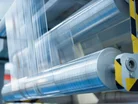UK Manufacturers Face Pressure to Cut Plastic Packaging

The global food and beverage industry is facing a massive challenge when it comes to reducing plastic packaging and the UK is at the centre of this crucial effort.
A recent study conducted by DS Smith uncovered a staggering truth: 51% of food and drink products in UK supermarkets are wrapped in plastic that could be replaced with more sustainable materials.
This amounts to a shocking 29.8 billion pieces of avoidable plastic waste each year in the UK alone. The message is clear: the time for change is now, but the path forward is riddled with obstacles.
The high cost of change
For many manufacturers, the transition from plastic to eco-friendly alternatives is no easy feat.
One of the biggest hurdles? Cost.
According to DS Smith’s study, 40% of surveyed food manufacturers and retailers identify the higher cost of raw materials for sustainable packaging as the primary barrier to making the switch.
In a highly-competitive market, where margins are tight and cost efficiency is king, the prospect of investing more in packaging can be daunting. Companies are understandably hesitant to dive headfirst into greener alternatives when the economic impact could be significant.
However, the cost concern isn’t just about the companies – there’s a ripple effect on consumers too.
The survey reveals that 72% of food manufacturers and retailers believe their customers would be unwilling to pay more for sustainably packaged products. This delicate balance between environmental responsibility and economic viability continues to slow progress across the board.
The tug-of-war between convenience and sustainability
Closely tied to cost is concern that consumers may push back on changes in packaging.
In fact, 65% of manufacturers suspect that customers would resist trading convenience for sustainability and it's easy to see why. Plastic, for all its environmental issues, is a marvel of convenience – it’s lightweight, durable and keeps food fresh for longer periods.
This is particularly important for processed foods like ready meals, meal kits and other categories such as bread, cereals, dairy products and meat, where up to 90% of items are packaged in plastic.
In these sectors, plastic is seen as essential for maintaining product freshness and safety, while also extending shelf life. Transitioning to more sustainable materials without compromising these key benefits is a significant technical challenge that requires considerable research and development.
The concern is that, even if manufacturers develop alternatives, they may face resistance from customers accustomed to the ease of plastic packaging.
A global issue with local solutions
Although the UK stands out as a leading plastic consumer, with 70% of its food and drink items wrapped in plastic, the problem extends beyond its borders.
Spain (67%), Italy and Germany (both at 66%), Poland (62%) and France (59%) are also heavy users of plastic packaging. The high numbers across Europe indicate that this isn’t just a UK-specific issue but a widespread dependency that requires coordinated, international efforts.
Even though 98% of food manufacturers and retailers claim to have set plastic reduction goals, the reality is that progress has been slower than anticipated.
With 25% of companies admitting they are off track with their targets – many set for 2026 – time is running out for the industry to make significant strides. The clock is ticking and the urgency to reduce plastic waste has never been clearer.
Government action: The key to unlocking innovation?
Miles Roberts, Group CEO of DS Smith, has been vocal about the need for stronger government intervention.
He says: "Good progress has been made but there is evidently a great deal more to do.
"We think the government can and should be more demanding of us all – phasing out certain plastics to help create a level playing field that encourages innovation, investment and generates healthy competition to replace plastic."
Miles also highlights his own company's efforts in plastic reduction: "With some of the biggest brands in the world, we estimate we've been able to replace more than one billion pieces of plastic over the last four years, but it's the tip of the iceberg and we must do more."
This call for government action is echoed by many in the industry who believe that only through top-down directives can real progress be made.
Despite these challenges, there is a glimmer of hope. The UK government’s forthcoming Circular Economy Strategy and Zero Waste Roadmap are expected to provide much-needed support for more easily recyclable materials.
If done right, this could accelerate the industry’s transition away from plastic and towards a future that prioritizes sustainability.
The road ahead: A call for innovation
The findings of the DS Smith's study paint a stark picture of the food and beverage industry’s plastic problem, but they also present an opportunity.
With 29.8 billion pieces of avoidable plastic waste at stake annually, the need for decisive action has never been greater.
The challenge lies not only in developing sustainable packaging solutions but also in convincing consumers of their importance.
The future of packaging will depend on whether manufacturers, retailers, consumers and governments can work together to drive the innovation needed to make sustainability the new normal.
Make sure you check out the latest edition of Manufacturing Digital and also sign up to our global conference series - Manufacturing & Mobility LIVE
Manufacturing Digital is a BizClik brand.


